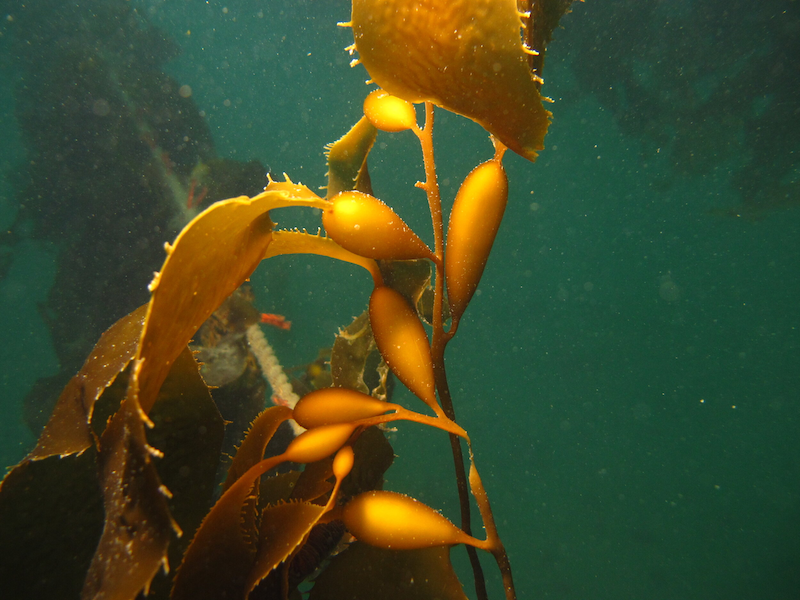
Novel seaweed cultivation project wins U.S. government contract
June 30, 2020
By ANA staff
 (Photo: Ocean Rainforest)
(Photo: Ocean Rainforest) Ocean Rainforest, Inc. has signed a contract with the Advanced Research Projects Agency – Energy (ARPA-E) to conduct the second phase of a pioneering seaweed cultivation project, known as “MacroSystems” in California. In partnership with Primary Ocean and Hortimare, Ocean Rainforest will design and test new methods for farming Giant Kelp (Macrocystis pyrifera) in open ocean conditions.
Over the next three years, Ocean Rainforest will launch a three-year demonstration project in the California Bight. The project is exclusively research-based and will not compete with existing commercial operations, a statement from the company said. At the project’s conclusion, Ocean Rainforest expects to help propel the industry forward in ways that:
- support the traditional fishing industry by creating fish habitat and increasing local fish populations
- improve the health of the marine environment by reducing the amount of excess nutrients in the water
- reduce ocean acidification by capturing CO2
- encourage economic development in the local community by creating sustainable and reliable jobs.
In response to a call for proposals by the Advanced Research Projects Agency – Energy (ARPA-E) MARINER program through the U.S. Department of Energy, MacroSystems was asked to demonstrate the economic and social opportunities of offshore cultivation of seaweeds in the U.S.
During phase one of the cooperative agreement, conducted from April 2018 to July 2019, the MacroSystems team designed a state-of-the-art cultivation structure that minimizes the impact of cultivation practice on existing marine operations (e.g. navigation, commercial fishing, etc.) and supports ecosystem services in the surrounding environment. The goal for phase two is to develop and scale up the necessary technology and machinery to de-risk the full production chain from seaweed propagation to harvesting.
“The ARPA-E Mariner Program will allow Ocean Rainforest and our partners to help ensure seaweed farming becomes a sustainable and cost-effective industry,” said Javier Infante, the primary investigator for the MacroSystems project. “By testing and carefully evaluating our cultivation system, direct seeding methodology and harvesting approach, our team has the opportunity to meaningfully support the health and well-being of our blue planet.”
In addition to demonstrating the feasibility and economic opportunity of seaweed cultivation in the U.S., the MacroSystems project will help catapult the industry forward at an international scale. The demonstration project will facilitate the development of novel harvesting and seeding technologies that could also reduce the labor requirements associated with traditional methods of cultivation, Ocean Rainforest said.
MacroSystems is working to establish new precedents for offshore seaweed cultivation. Research suggests that seaweed cultivation may be the most sustainable form of aquaculture.
“Seaweed could make a big difference in addressing climate change,” said Olavur Gregersen, CEO of Ocean Rainforest. “By scaling up seaweed cultivation and moving the industry offshore, you have the chance to make a real sustainable impact. What’s exciting for me is that the more seaweed we produce, the better off our planet is. You can’t say that about many industries.”
To learn more about the project, please contact Javier Infante at javier@oceanrainforest.com or Olavur Gregersen at olavur@oceanrainforest.com.
Advertisement
- Google sister company helps usher in precision aquaculture
- AquaMaof hires new sales director for North America





